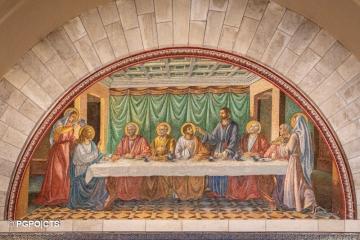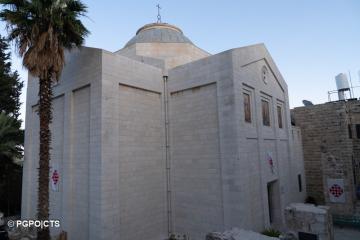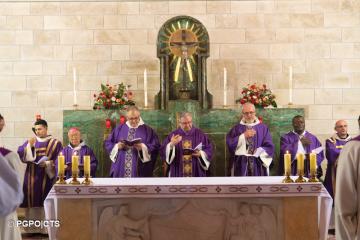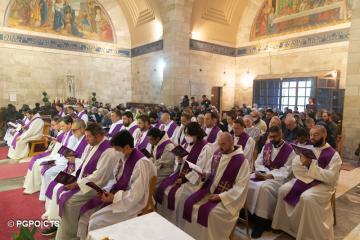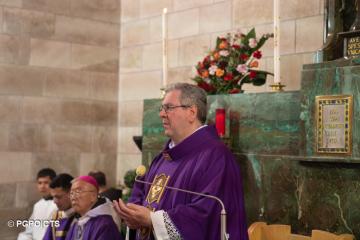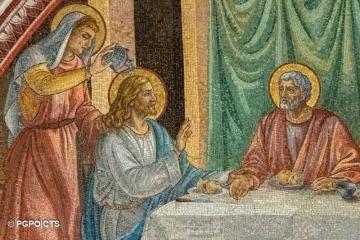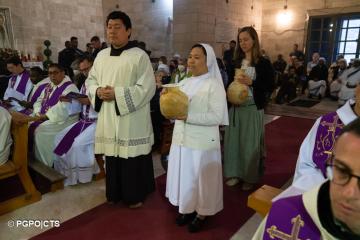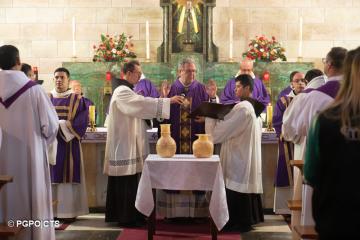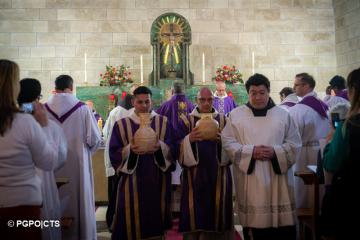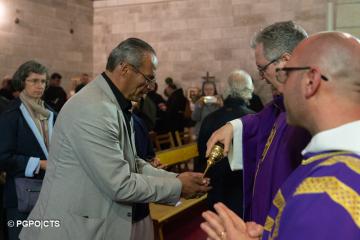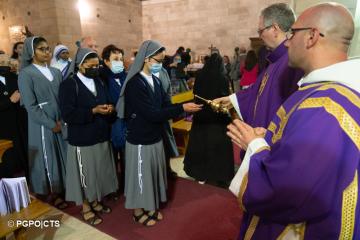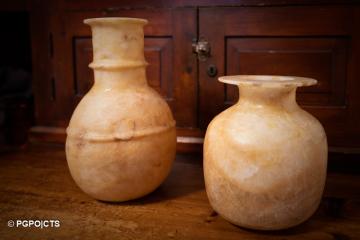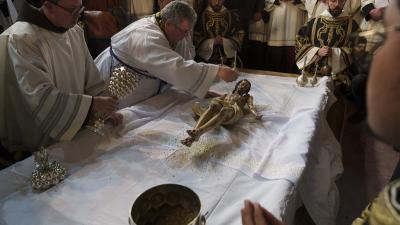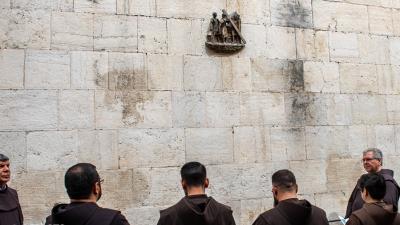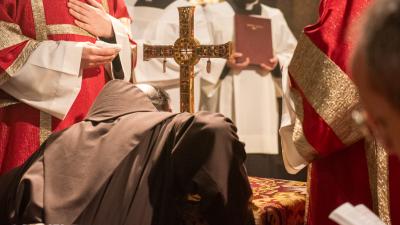
Introduced in the great week of the Easter liturgies from Palm Sunday, the first appointment in Holy Week is represented by the celebration of the blessing of the oils, aromas and the nard at the church of St Lazarus in Bethany on Holy Monday. The city, where Jesus performed one of his most famous miracles the resurrection of Lazarus, is famous for also being the place where, according to John’s gospel, the episode of Mary of Bethany pouring one pound oil perfumed with real and “very precious” “nard” over the feet of Jesus; Mary, a friend of the Lord and sister of Martha and Lazarus, then dried his feet with her hair, filling the whole house with the scent of the unguent. This took place “six days before Passover” (John, 12.1).
During the celebration, presided by the Custos of the Holy Land, Fr. Francesco Patton,the perfumed oils which will be used on Good Friday in the parishes of Jerusalem and the Holy Sepulchre, on the occasion of the traditional funeral procession, which recalls three events, were blessed: Mary’s perfuming Jesus alive in Bethany, the honour paid to Jesus dead by Joseph of Arimathea and Nicodemus, and the intention of the three women who took aromas to the empty tomb, after the resurrection.
I his commentary on the gospel, the Custos insisted on the value of the gratuitousness evoked by Mary’s gesture in relation to the Lord, the expression of a love which, like the perfume of the unguent, tends to be diffused all around. It is a gesture of love which transcends the logics and the calculations of those who reason having a “cash register in the place of their heart” and cannot “understand the logic of love, which is essentially a gift and gratuitousness and therefore, at least in part, often waste."
What to Judas Iscariot may seem a waste, that is, the “three hundred grams of perfume of pure nard,” is actually a gesture of immense value for Christ who, on the cross, “will waste his whole person to perfume our feet, that is, to reconcile us with the Father, save us, introduce us into divine life, and show us what to love means”
The example of Mary of Bethany therefore perfectly expresses the logic of gratuitous love, the essence of Christian life; with this sign, she “recognizes and prophesizes the infinite value of the gesture of love that Jesus will make in his giving himself entirely to us.”
What does it mean though for us to celebrate this gesture today? "It means assuming the divine logic of the good that is spread without making a noise,” Fr Patton answered; "If we decide to do good we will do it silently and we will do it freely. Those who do good do not make a noise and do not want to appear because the good is simple and does not make a noise: looking after people, whether small and poor, migrants and refugees or elderly and sick, is something that does not make a noise. Good is like the wheat that grows silently int eh fields, and then nourishes and gives life.”
A large number of religious men and women and a group of local faithful were present at the event, At the end of the celebration, the assembly come together to share dinner in the parish premises.
The present-day Shrine is the work of the well-known Italian architect Antonio Barluzzi,who was asked by the Custody of the Holy Land to build it in the early 1950s. The designation of this place for building the church depended on the presence of remains of holy buildings dedicated to Lazarus. In building the structure, Barluzzi intended to express the contrast, made clear by the architecture of the Shrine amid the darkness of eternal sleep and the light of life, arousing in visitors, through lines and colours, the "sadness of death and the joy of the resurrection.”
Filippo De Grazia


